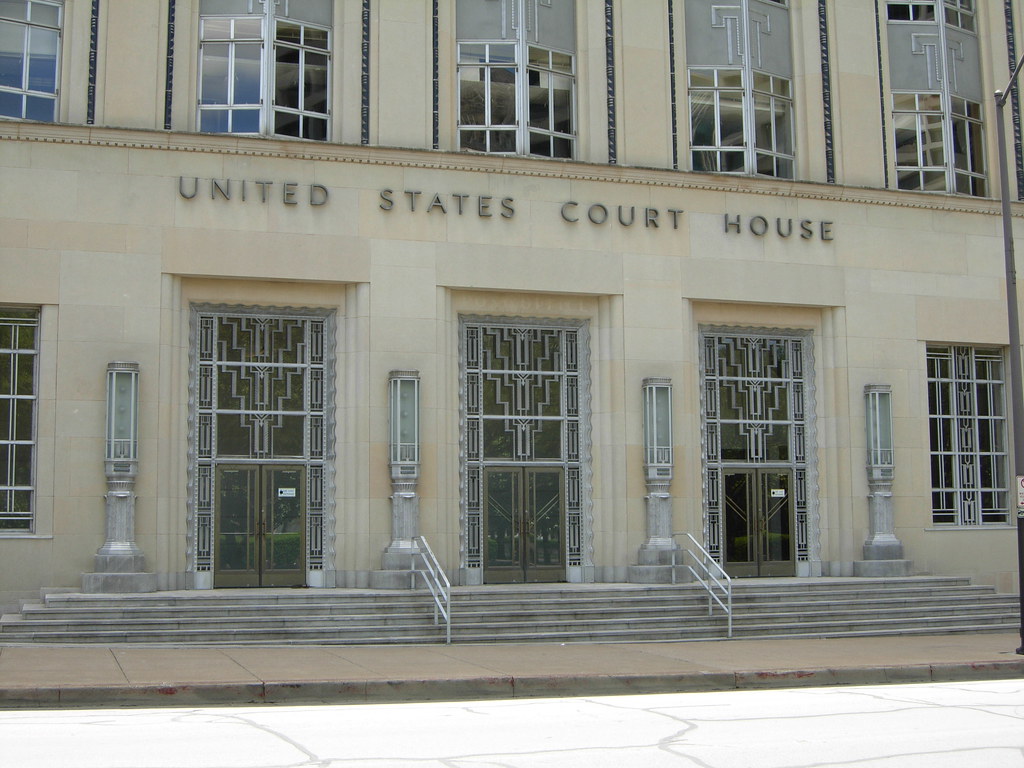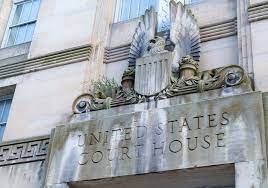Understanding Federal Criminal Charges
Due to the aggressive nature of the federal government, the enhanced training and knowledge of federal prosecutors, the complexity of proceedings, and the large number of individuals typically prosecuting in the same case, a federal court is no place for the inexperienced state court practitioner.
A huge difference between local courts and federal courts is the punishment procedure. U.S. sentencing guidelines, although no longer mandatory are still vital in the sentencing process; the guidelines are harsh and punishments are exceptionally stern.
The federal justice system does not usually provide parole opportunities. In most cases, convicted individuals will serve more than 85 percent of their sentences. These issues make defending against federal charges more complex and emotionally draining than defending against state charges. It is also a reason to hire an expert Federal Criminal Lawyer.
Difference between federal and state criminal charges
Understanding the difference between federal and state criminal charges is crucial when navigating the legal system. While both types of charges involve criminal offenses, they differ in jurisdiction and consequences.
Federal criminal charges are prosecuted by federal agencies such as the:
- Federal Bureau of Investigation (FBI)
- Drug Enforcement Administration (DEA)
- Internal Revenue Service (IRS).
These charges typically involve offenses that violate federal laws, such as drug trafficking, white-collar crimes, or interstate crimes. Federal crimes are often more complex and carry more severe penalties compared to state charges.

On the other hand, state criminal charges are prosecuted by local or state law enforcement agencies. These charges involve offenses that violate state laws, such as theft, assault, or DUI. State crimes are generally handled by local district attorneys or state prosecutors, and the penalties vary depending on the severity of the offense and the state’s laws.
Jurisdiction
One key distinction between federal and state charges is the jurisdiction where the crime occurred. If the offense violates both federal and state laws, the prosecuting authority can choose whether to pursue the case at the federal or state level. Factors considered include the nature of the crime, available resources, and potential penalties.
Sentencing guidelines
Federal crimes often have mandatory minimum sentences established by federal statutes, leaving judges with less discretion in determining penalties. State crimes, on the other hand, may have more flexibility in sentencing, allowing judges to consider mitigating factors or tailor the punishment to fit the circumstances.
Common types of federal crimes and their penalties
Understanding the common types of federal crimes and their associated penalties is crucial for anyone who wants to navigate the complex world of federal criminal charges. Federal crimes encompass a wide range of offenses, each carrying its own set of consequences. Here are some common types of federal crimes and their penalties:
Drug Trafficking
Drug trafficking involves the illegal production, distribution, or sale of controlled substances. Penalties for drug trafficking can vary depending on factors such as the type and quantity of drugs involved, previous convictions, and the presence of aggravating factors. Sentences can range from several years in prison to life imprisonment, accompanied by hefty fines.
Fraud
Federal fraud offenses encompass a broad range of activities, including tax fraud, healthcare fraud, securities fraud, and bank fraud. The penalties for fraud can be severe, with potential consequences such as substantial fines and lengthy prison sentences. The severity of the penalties often depends on the amount of money involved, the level of deceit, and the impact on victims.
Money Laundering
Money laundering involves disguising the origins of illegally obtained funds by making them appear legitimate. It is a serious offense with significant penalties. Convictions for money laundering can result in lengthy prison terms and substantial fines, often proportional to the amount of money involved in the scheme.
Cybercrimes
With the rise of technology, cyber crimes have become more prevalent. These offenses include identity theft, hacking, phishing, and intellectual property theft. The penalties for cybercrimes can be severe, with potential imprisonment and substantial fines, reflecting the serious threat they pose to individuals and organizations.
Firearms Offenses
Federal firearms offenses involve the illegal possession, sale, or use of firearms. These crimes carry significant penalties due to the potential danger they pose to public safety. Sentences can range from several years to life imprisonment, depending on the circumstances and the offender’s criminal history.
Process of a federal criminal case
The process of a federal criminal case can often be overwhelming and confusing. It is crucial to have a clear understanding of the steps involved to navigate through the legal system effectively. While every case is unique, there are some common phases that most federal criminal cases go through.
- Investigation: The process typically begins with an investigation conducted by federal law enforcement agencies such as the FBI or DEA. During this phase, evidence is gathered, witnesses are interviewed, and any potential suspects are identified.
- Arrest: If the investigation leads to sufficient evidence, law enforcement may make an arrest. In federal cases, arrests are usually made by federal agents, and the accused is taken into custody.
- Indictment or Information: After the arrest, the case is presented to a grand jury, which determines whether there is enough evidence to proceed to trial. If the grand jury finds probable cause, they will issue an indictment. In some cases, the prosecution may opt for information, which is a formal charging document used in certain circumstances.
- Initial Appearance and Arraignment: Once the indictment or information is issued, the accused is brought before a judge for their initial appearance. During this hearing, the charges are read, and the defendant’s rights are explained. Following the initial appearance, the arraignment takes place, where the defendant enters a plea of guilty or not guilty.
- Pretrial Proceedings: This phase involves various stages, including discovery, where both the prosecution and defense exchange evidence and information. Motions may also be filed by either party, seeking to suppress evidence or dismiss the case based on legal grounds. The court may also schedule hearings on these motions.
- Trial: If the case proceeds to trial, both sides present their evidence, call witnesses, and make arguments. The jury then deliberates and reaches a verdict. However, it is essential to note that not all federal criminal cases go to trial. Some may be resolved through plea bargains or dismissed if the evidence is insufficient.
- Sentencing: If the defendant is found guilty or pleads guilty, the court will proceed to sentencing. Factors such as the severity of the offense, the defendant’s criminal history, and any applicable sentencing guidelines are taken into consideration. The judge determines the appropriate punishment, which may include imprisonment, fines, probation, or a combination of these.
- Appeals: Following a conviction, the defendant has the right to appeal the verdict or the sentence imposed. Appeals are typically based on legal errors made during the trial or sentencing phase.
Federal Grand Jury Representation
As required by the Fifth Amendment, the United States has an established grand jury which serves as a sort of pre-trial before an actual conviction can occur.
 While indictment by the grand jury does not mean that a person is necessarily guilty, it does mean that a sentencing trial must occur. Federal Grand Jury Attorneys can provide experienced legal counsel for all state and federal grand jury proceedings.
While indictment by the grand jury does not mean that a person is necessarily guilty, it does mean that a sentencing trial must occur. Federal Grand Jury Attorneys can provide experienced legal counsel for all state and federal grand jury proceedings.
Federal grand juries hear evidence and consider the indictments submitted by the prosecution. After consideration of the charges and all evidence, federal grand juries decide whether probable cause exists to return a set of proposed charges against the defendants. A Federal Grand Jury Attorney can argue on your behalf, possibly resulting in your case not going to trial.
Federal Tax Fraud Charges
When allegations of tax indecency become criminal charges involving your business or personal finances, consult with a qualified and passionate Federal Tax Fraud Attorney.
Tax laws are becoming increasingly complex, and many taxpayers who intend to abide by the law can sometimes end up in trouble. A qualified Federal Tax Fraud Lawyer has the specialized knowledge necessary to ensure that vague and misleading tax code is not being misinterpreted to falsely charge their clients with tax crimes.
Crimes that are considered ‘federal tax charges’ include:
- Fraud: Intentional deception made for personal gain
- Money laundering: Hiding the origins of money obtained illegally
- Crimes involving moving money across state lines
- White-collar crimes: Also known as business or corporate crime & are usually intermingled with legal behavior
- Tax evasion and tax fraud
- Public corruption: Corruption of those holding public office including bribery, extortion, embezzlement, and kickbacks.
Federal Firearms Charges
A weapons charge is always serious. It only becomes more serious when it is compounded with a violent crime, a drug charge, or some other modifying factor that makes it a federal offense. If you have been arrested on a federal gun charge it is important to act quickly and to speak with an experienced Federal Firearms Charge Attorney about your legal rights and defense options.

A weapons charge is always serious. It only becomes more serious when it is compounded with a violent crime, a drug charge, or some other modifying factor that makes it a federal offense. If you have been arrested on a federal gun charge it is important to act quickly and to speak with a qualified Federal Firearms Charge Lawyer about your legal rights and defense options.
Many federal crimes carry huge consequences or minimum sentences. In addition, a weapons charge in conjunction with another federal crime will likely mean mandatory jail time if you are convicted. The charge can also mean a substantial time will be added to your sentence, even if the weapon is properly registered.
The list of federal weapons charges often gets confused with those prosecuted at the state level.
The following list contains all charges that are considered federal weapon offenses:
- Use of a firearm in furtherance of a drug trafficking crime
- Use of a firearm in furtherance of a crime of violence
- Possession of illegal or prohibited weapons (Weapons of certain firepower or capability)
- Unlawful sale or purchase of firearms
- Felon-in-possession violations
- Possession of explosive devices or body armor
- Bank robbery
Like most federal crimes, these weapons charges all carry mandatory minimum sentences. These sentences range from five years in jail to life in prison. These are extremely hard to mitigate and can be very damaging to a person. An Unprofessional or inferior attorney will often say that there is no defense in these cases.
Rights of the Accused in federal criminal cases
When facing federal criminal charges, it is crucial to understand the rights of the accused. These rights are designed to protect individuals throughout the legal process and ensure a fair trial. Here are some key rights that every accused person should be aware of:
- Right to legal representation: The accused has the right to hire an attorney or, if they cannot afford one, to have a lawyer provided by the court. This ensures that they have competent legal counsel to help navigate the complexities of the federal criminal justice system.
- Right to remain silent: The Fifth Amendment provides the right against self-incrimination. This means that the accused has the right to refuse to answer questions from law enforcement or testify in court. Anything they say can be used against them, so it is crucial to exercise this right and consult with an attorney before making any statements.
- Right to a speedy trial: The Sixth Amendment guarantees the right to a speedy trial. This means that the accused should not face unnecessary delays in their case and have the right to a timely resolution. However, the definition of “speedy” may vary depending on the circumstances of the case.
- Right to confront witnesses: The accused has the right to confront and cross-examine witnesses against them. This allows them to challenge the credibility and accuracy of the evidence presented by the prosecution and to present a strong defense.
- Right to be presumed innocent: Every accused person is presumed innocent until proven guilty beyond a reasonable doubt. This fundamental principle places the burden of proof on the prosecution and underscores the importance of the presumption of innocence throughout the entire legal process.
Federal Sentencing Guidelines
Many federal crimes carry a mandatory minimum sentence. It is easy to become disillusioned or angry when hiring a lawyer as many believe that they cannot lower or mitigate the factors of a sentence, but this does not have to be the case.
Federal criminal charges are harder to fight. Federal agencies have more resources to investigate than local ones, so there is typically more concrete evidence in federal cases. Federal prosecutors also have more time to devote to each case; therefore, they rarely file charges unless they feel they have a very strong case.
Federal judges are likely to weigh the factors called for in the federal sentencing guidelines when determining and imposing a prison sentence.
Some of the factors that may be considered include:
- Severity
- Number of persons affected or displaced by the crime
- In illegal possession cases, the number of illegal items possessed.
Federal criminal charges entail insistent and adamant defense strategies that combat the tactics used by experienced prosecutors. If you have been charged with a federal crime, you should be aware that the FBI and federal prosecutors may have many weeks or months of a ‘head start’ on gathering evidence and witnesses. For this reason, securing a Federal Criminal Sentencing Lawyer that will work hard for your freedom should be of the utmost importance.
Role of a Federal Criminal Defense Attorney
When facing federal criminal charges, it is crucial to understand the significant role that a federal criminal defense attorney plays in your case. While you have the right to represent yourself, navigating the complex legal system without professional guidance can be overwhelming and detrimental to your defense.
A skilled federal criminal defense attorney is well-versed in federal laws and experienced in handling cases in federal courts. They possess a deep understanding of the intricacies of federal criminal law, which differs significantly from state laws. This expertise enables them to provide you with the most effective legal representation.
One of the primary responsibilities of a federal criminal defense attorney is to protect your rights throughout the entire legal process. They will thoroughly analyze the evidence against you, scrutinize the procedures followed by law enforcement agencies, and ensure that your constitutional rights were not violated during the investigation or arrest.
A federal criminal defense lawyer will devise a defense strategy tailored to your specific case. They will assess the strengths and weaknesses of the prosecution’s case, identify potential defenses, and explore any opportunities for mitigating the charges or negotiating a favorable plea deal. Their goal is to achieve the best possible outcome for you, whether it’s a dismissal of charges, reduced penalties, or acquittal at trial.
A federal criminal defense attorney will handle all communications and negotiations with the prosecution on your behalf. This includes engaging in plea bargaining, presenting arguments during pre-trial motions, and representing you at trial if necessary. Their extensive courtroom experience gives them the skills to effectively present their case and advocate for your rights before the judge and jury.
If you or your loved one is facing federal criminal charges, you do not have to do it alone. You need a competent Federal Criminal Lawyer who will stand up for you against the federal prosecutors. You need an attorney who will weaken the government’s case by various strategic means. We will use procedural methods to gain an advantage that can be used later in the suppression of evidence, ultimately improving your chances for a case dismissal, reduced charges, and a plea bargain.




